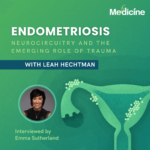Vaccination is a very topical and personal question. While I agree it’s generally advisable for some to have it, whether we actually need it is another issue. Think about it thoroughly and remember that this vaccine contains thiomersal (Mercury), which prompts a number of other health related questions.
Collectively, pandemics are said to occur in cycles of every 10-40 years. As such, collective strategies to reduce the pandemic spread have seen a reduction in severity compared to previous pandemics. When you review the timing of most pandemics they often synchronise with other global health effects that compromise immune function. If this is the case, perhaps we need to consider what has been negatively influencing our immune systems.
There is countless research to support that there is a mass deficiency of Vitamin D. Studies suggest that greater than 80% of people may be deficient and those with darker skin being the most deficient. The classic function of vitamin D is to regulate calcium homeostasis however we now understand that it also has many positive effects on the immune response. Vitamin D is a potent immune modulator with countless studies highlighting this role.
Perhaps we should be focusing on why a pandemic is occurring and why people’s immune systems are lowered and thus infection occurring. With this consideration, specific areas that everyone should look at include hygiene – according to reports the virus can live for up to 2 hours – wash your hands! If you’re overstressed and starting to feel rundown, take some time off and recover. A depleted body is more susceptible to picking up any bug. Support your body throughout winter by eating well, reducing sugar and caffeine (both connecting with reducing the efficiency of the immune response) and focus on nutrient rich foods, increase your garlic consumption, consider supplementing with vitamin c and zinc, and herbal medicines such as Echinacea and Andrographis are excellent immune boosters.


